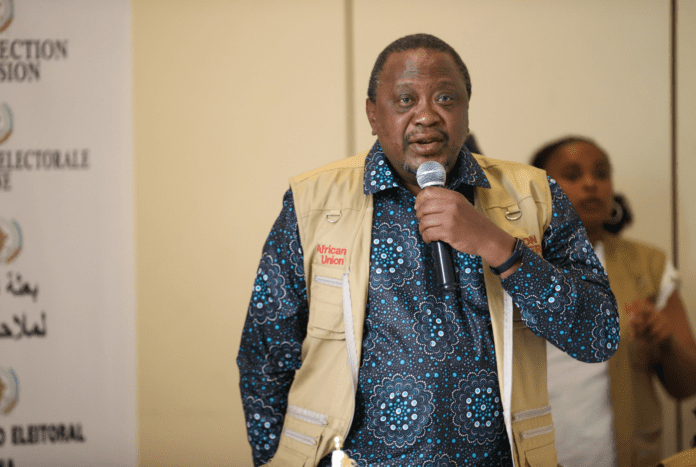Former President Uhuru Kenyatta has lamented being sidelined in the Democratic Republic of Congo (DRC) peace talks, even as conflicts in the region escalate.
According to Uhuru, the Nairobi Peace Process—an essential framework for dialogue and conflict resolution in eastern DRC—has been temporarily set aside. However, he emphasized that it remains critical in addressing the ongoing hostilities.
“The Facilitator remains committed to finding pathways to peace in collaboration with the government of DRC, regional partners, and international stakeholders,” his statement read in part.
The former president stressed the urgent need to revive peace talks, citing the dishonoring of a previous ceasefire as a major setback that has hindered diplomatic progress.
“Despite efforts to maintain dialogue between Kenyatta, (Congo President) Felix Tshisekedi, and the M23 rebels, the political situation in eastern DRC has become increasingly unstable,” his spokesperson, Kanze Dena, stated.
She attributed the delay in resuming the Nairobi Process to the formation of a new government following the DRC’s December 2023 elections. The lack of political momentum, coupled with renewed hostilities in North Kivu and South Kivu, has significantly undermined previous gains.
Uhuru now urges Rwanda and DRC to embrace dialogue and agree on a ceasefire to ease tensions.
“The Facilitator strongly believes that the Luanda and Nairobi processes offer the best chance for resolving the crisis in eastern DRC,” the statement added.
He underscored the interdependence of the two processes, emphasizing that only through coordinated bilateral negotiations and inclusive intra-Congolese dialogue can the crisis be resolved.
Structure of the Nairobi Peace Process
Uhuru also shed light on the framework of the Nairobi Peace Process, which is based on two key pillars: political dialogue and military intervention.
The political aspect seeks to involve armed groups, political factions, civil society, and regional partners in comprehensive discussions aimed at fostering long-term peace.
On the military front, the East African Community Regional Force (EACRF) was deployed for peacekeeping and enforcement to support diplomatic efforts.
“Progress through June 2023 was encouraging. Facilitator Kenyatta engaged extensively with political, civil, and military stakeholders across the region,” the statement noted.
Kenya’s involvement included targeted discussions with armed groups, confidence-building measures with civil society and women’s groups, and organizing high-level conferences to ease tensions. These efforts, backed by the EACRF, the UN, and MONUSCO, led to a reduction in hostilities, the return of displaced persons, and significant withdrawals by armed groups from strategic areas in North Kivu.





![SHA Suspends Dozens of Health Facilities Over Alleged Fraud [LIST]](https://citymirror.ke/wp-content/uploads/2024/12/image-14-218x150.png)

